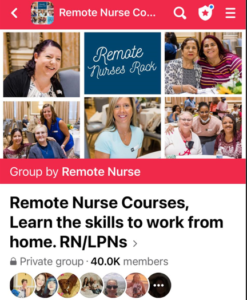By Sarah Tapia, RN
Healthcare professionals are trained to spot medical issues and clinical factors to control symptoms, stop illnesses from getting worse, and to support good health. Unfortunately, we find patients return repeatedly without showing signs of improvement or with worsening health.
This situation begs the question: why aren’t these patients improving? What crucial aspects might we be overlooking?
Doctors and healthcare workers have started to realize that just looking at a person’s medical problems isn’t enough to help them get better.
They have discovered that things like where a person lives, how much money they have, and their community support are also really important for their health to improve.
This realization marked a groundbreaking shift, a level 10 unlock in healthcare. This shift wasn’t just about acknowledging these social factors but actively addressing them. It meant collaborating with social services, community organizations, and policymakers to bridge gaps and provide holistic care.
Witnessing tangible improvements in patients who previously showed little progress underscored the magnitude of this change. It ignited a transformative journey where understanding and acting upon social determinants of health became fundamental in achieving actual, sustainable health improvements.

The Crucial Role of Social Elements in Healthcare Evolution
Recent studies prove that Social Determinants of Health (SDOH) are significant contributing factors to patients not doing well.
These studies show that many social factors affect how well a patient follows their healthcare plan.
Things like not having enough money for food, medicine, or copays, not having a way to get their medicine, and having to choose between buying medicine or buying food can seriously impact a person’s health.
For example, if someone with diabetes can’t afford healthy foods to manage their blood sugar, it’s a big problem. Also, not having a stable place to live can make a person’s health worse.
This idea is changing how healthcare works by focusing more on the social side of patients’ lives, not just adding it to the treatment plan but making it a top priority. Many healthcare groups are changing what they offer to help ensure people have enough food, money, a place to live, and good social connections.
In 2023, the new social factors that affect health include how much money people make, job opportunities, racial differences in where people live, having enough food and good nutrition, having a stable place to live, the quality of the neighborhood, access to good education, and having strong social support.
These things affect how healthy someone is, so it’s important to consider them when giving healthcare.
Here are key strategies addressing Social Determinants of Health (SDOH) that play a crucial role in improving health outcomes and reducing healthcare costs.
Housing-“Housing First” interventions for individuals with chronic health conditions improve health outcomes and sometimes reduce healthcare costs while addressing home health risks like lead paint or secondhand smoke.
Food and Nutrition-Efforts enhancing food access through healthy environments, public programs, and evidence-based nutrition standards lower healthcare costs and improve health outcomes.
Transportation –Improved transportation infrastructure, including sidewalks and public transit, eases physical activity, and cost-effective non-emergency medical transportation boosts preventive care.
Social and Economic Mobility– Cash payments to families and support for low-income individuals, along with early childhood care and education, correlate with better health outcomes.
Social Service Connections-Studies on multidisciplinary care teams supporting Social Determinants of Health (SDOH) show mixed effects on care costs and outcomes.
The U.S. Department of Health and Human Services adopts a multifaceted approach across federal programs, integrating data and collaborating to advance health equity and well-being.

Prioritizing Holistic Health: Elevance Health’s Mission for Comprehensive Well-being
Elevance Health is taking the lead in this area, setting an example in practical approaches. They strongly believe that everyone deserves the opportunity to achieve their best possible health, benefiting both individuals and society as a whole.
They recognize that unaddressed social and behavioral health needs can sometimes hinder physical well-being.
Their dedication to this belief is so firm that they’ve centered their business and health strategy around it.
Improving healthcare access for people who find it hard to get medical help involves using different methods.
These methods include giving bus fare or childcare services to help them reach appointments, knowing what languages patients prefer and having interpreters, having clinics open longer and near where people live, and making clinics friendly to different cultures.
Also, giving healthcare workers goals and rewards for doing well, and reaching out to schools or teaming up with community groups to offer healthcare services outside of clinics are important steps.
They want to focus on everything that affects a person’s health – their body, mind, and their life around them. By looking at data, they figure out the most important things affecting the health of the people they help and find ways to fix them.
They’re also helping by offering support like doulas, good food, and better healthcare in rural areas. For example, many pregnant women can’t get proper care and face problems at home or work that make it hard to see a doctor regularly.
Elevance Health provides doulas in their Medicaid programs. This has made a big difference – fewer hospital visits during pregnancy, more post-birth check-ups, lower chances of certain medical procedures, and less cost compared to those without this help.
Studies also show that some women, especially those from Black and Hispanic/Latino backgrounds, feel better and more cared for when doulas are there.
Elevance Health also found that lots of people struggle to find healthy food. In a survey, half of the people said it’s tough to get affordable, good food nearby.
Therefore, Elevance Health supports programs that give out healthy food in communities. This helps manage ongoing health issues like diabetes, asthma, and high blood pressure by making good food easier to get.
Elevance Health has rooted its business in an all-encompassing health approach. They have done a good job of comprehending the significance of this approach by addressing all elements contributing to an individual’s health.
They acknowledge that considering the broader picture of health factors is ethically imperative and essential for effective and efficient healthcare practices.

Shared Commitment: Marie Peppers’ Nurses and Elevance Health Prioritize Social Determinants of Health in Education and Practice
Nurses’ Vital Role in Addressing Social Determinants of Health
Having case managers and nurses is important because they help connect patients to what they need but might not have.
In Marie’s courses preparing nurses for various remote nursing jobs, she strongly highlights the importance of Social Determinants of Health (SDOH) in her curriculum, acknowledging their crucial role in healthcare.
The course shows how if these needs aren’t met, most plans for care don’t work well. Nurses learn to dig deeper into problems and provide viable solutions.
For example, if a patient has issues getting medicines for conditions like high blood pressure and diabetes because they can’t travel, Marie’s courses train nurses on where to find transportation resources or switch patients to a mail-order pharmacy.
Marie’s courses teach how to help patients by sorting out payment issues or getting temporary medicines from pharmacies.
The courses arm nurses with viable solutions to resolve barriers to getting medical care or medications.
For example, case managers can reach out to doctor’s offices and ask for free medicine samples during tough times.
Additionally, nurses can reach out to pharmacies and advocate for patients. In some instances, pharmacies will give a 3 to 4-day free supply of medications while a patient is waiting for their Social Security or Disability check.
Addressing these unmet social issues helps make healthcare better for patients overall.
Empowering Nursing Practice With Impactful Courses
Marie Peppers and her team, comprising four RNs and three LPNs, are dedicated to supporting nurses in their careers. Collaborating with main teachers Jessica, Nicole, and Diana, Marie’s transformative healthcare education, specifically the CCM-RPM-HEDIS course, empowers nurses on Social Determinants of Health (SDOH). The course emphasizes the critical role of addressing SDOH in healthcare provision, highlighting that unmet social needs can undermine care plans.
Nurses undergo training to identify and address social factors, ensuring patients have access to essential resources beyond medical care. Marie’s courses go beyond conventional nursing training, offering practical solutions to navigate social determinants and distinguish nurses in the field. Explore these impactful courses and more on her website, equipping nurses for comprehensive and transformative patient care. To explore more about Marie Peppers and how her hardworking team contribute to the nursing community, connect with her on LinkedIn and Facebook.
Facebook.com/Remote Nurse Jobs
Marie Peppers Book
Ready to revolutionize your nursing career? Marie Peppers’ book on Amazon holds the key. Uncover inspiring tales and strategies to navigate beyond burnout. Elevate your nursing journey—grab your copy now and chart a new course!
Next Level Nursing: Remote Nurse Opportunities

References:
Amelia Whitman, Nancy De Lew, Andre Chappel, Victoria Aysola, Rachael Zuckerman, Benjamin D. Sommers. ASPE (2022, April 1). Addressing Social Determinants of Health: Examples of Successful Evidence-Based Strategies and Current Federal Efforts.https://aspe.hhs.gov/sites/default/files/documents/e2b650cd64cf84aae8ff0fae7474af82/SDOH-Evidence-Review.pdf
National Institute of Nursing Research. (2023, July 17). Advancing Social Determinants of Health Research at NIH Through Cross-Cutting Collaboration. https://www.ninr.nih.gov/newsandinformation/newsandnotes/sdoh-rcc-001


